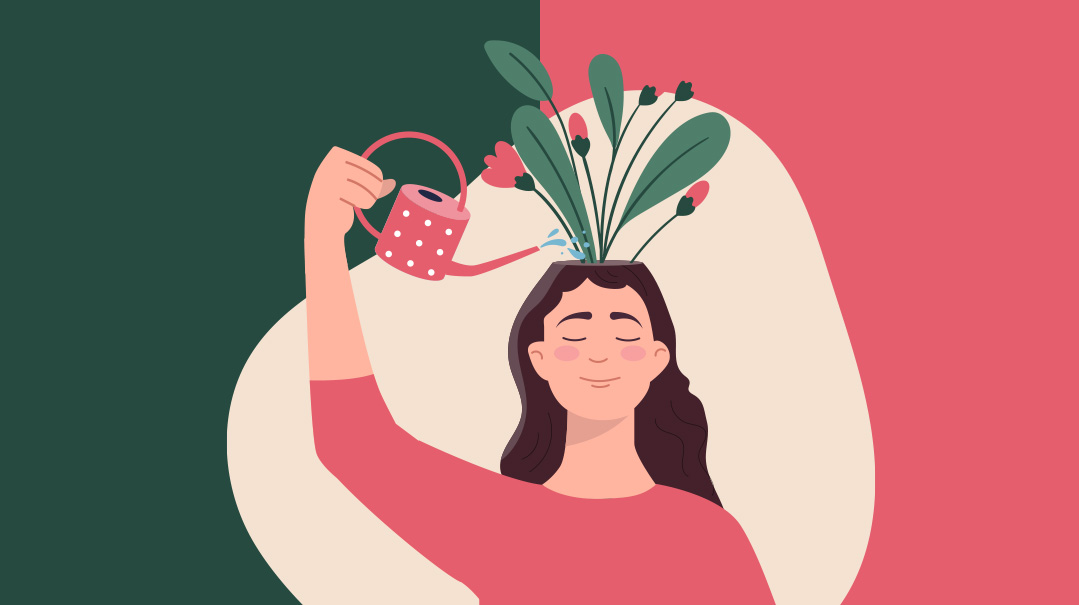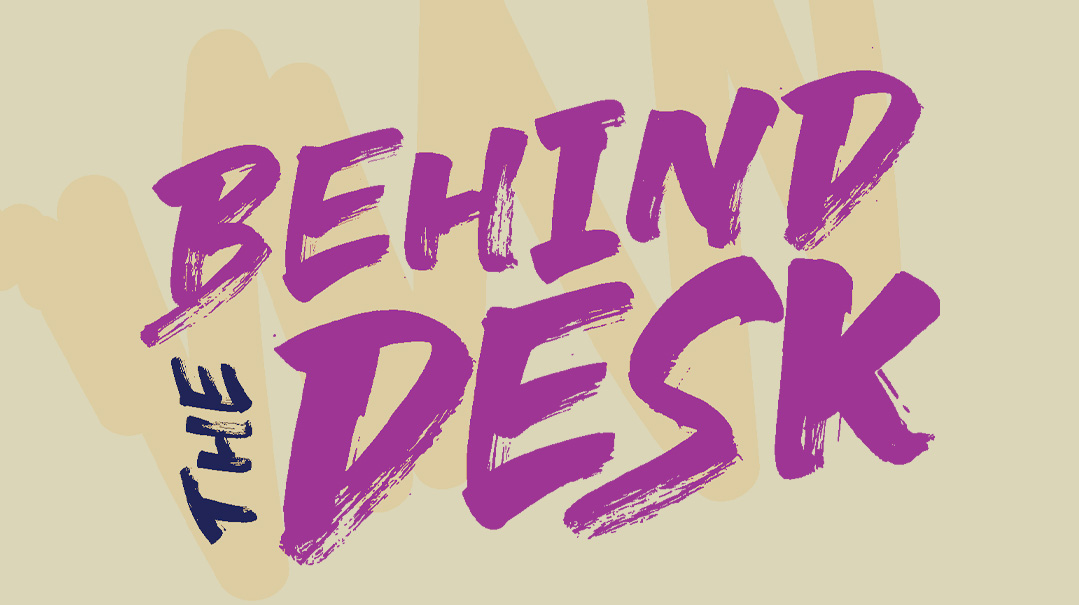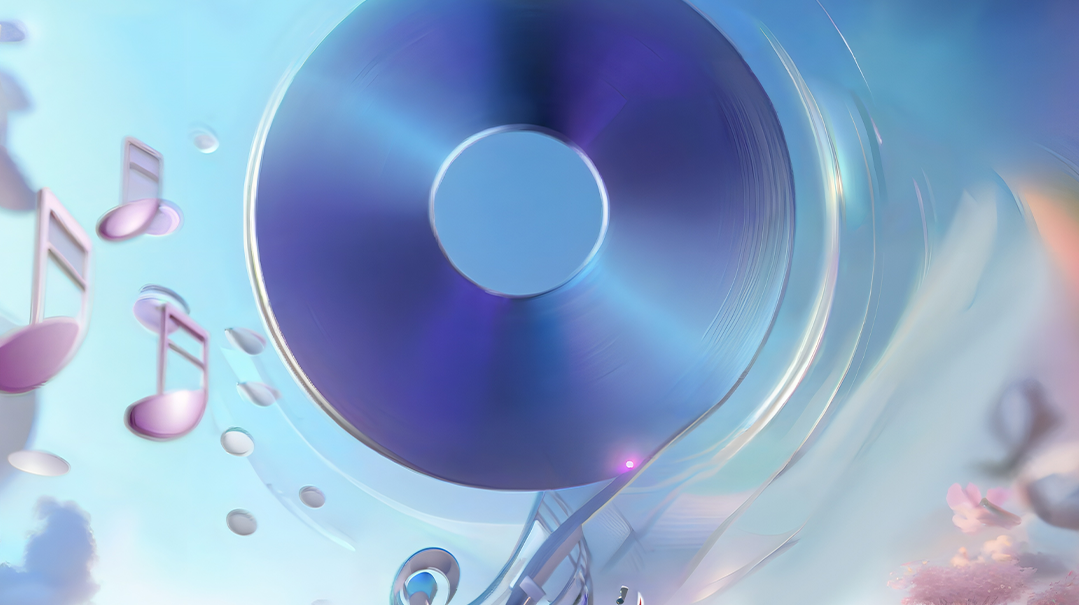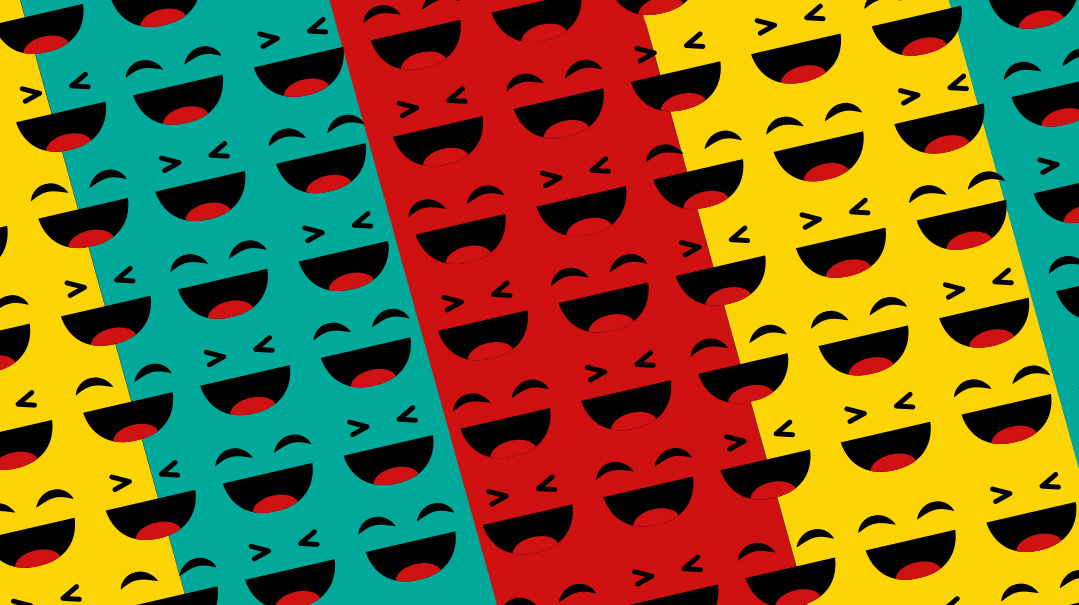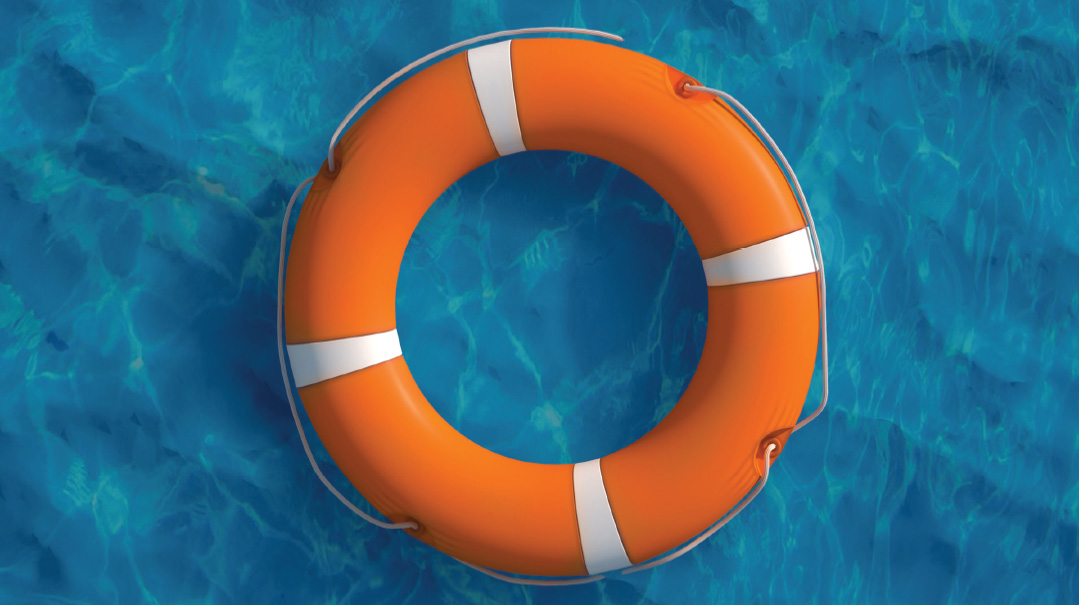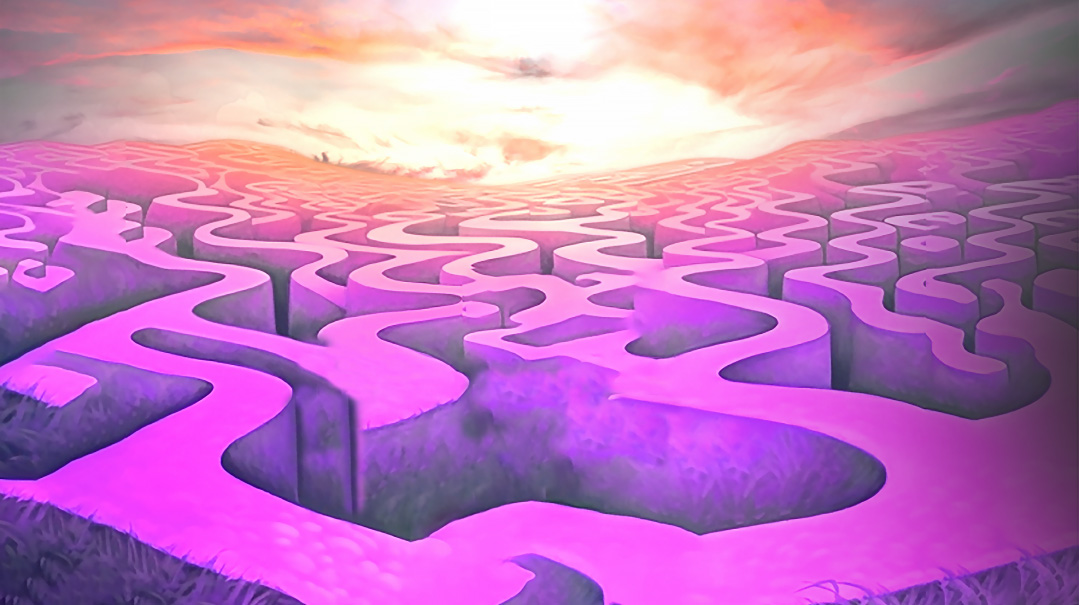Lasting Lessons
| December 1, 2021High school lessons and real life
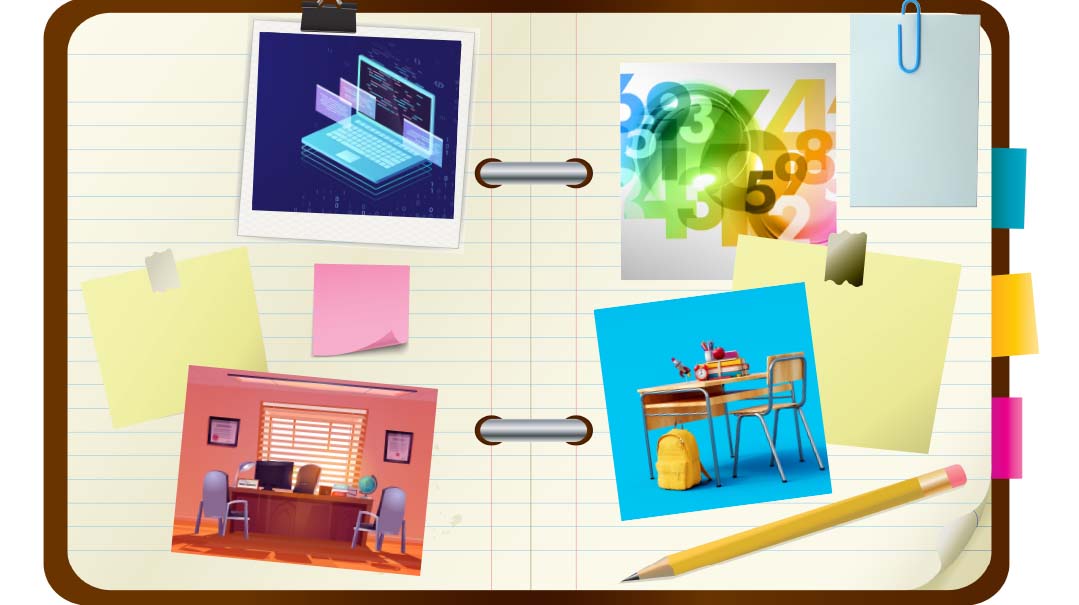
Have you ever sat in class wondering to yourself about the purpose of the material you’re learning? Like seriously, what is the point of this? How will this help me in real life?
This is a question that teens have been asking themselves for years. (I know because I’ve been there, done that.)
Yet after graduation, you may be surprised to learn that some of the lessons have actually turned out to be useful in real life — be they academic lessons, informal lessons, or relationship lessons.
But here’s the thing: It’s hard to know which lessons will impact our lives until much later on in life. So, I reached out to a number of accomplished women — from recent grads to grandmothers — and asked them to share the most significant and useful lessons they learned from high school, as well as the subjects they wished they could have learned.
As I listened to the replies, I pictured these women as students, laid-back and carefree. As students, did they know which lessons (some of them informally learned), would ignite sparks in the future and significantly help and inspire them later in life? And just like the Chanukah oil burned for longer than expected, so too some of these high school lessons lasted for decades….
So, to all you teens out there, the lessons you learn today, whether in school or out, may just keep you growing and thriving years down the road. You never know….
Make the most of your high school years
Relationships. You probably will botch up at some point. Don’t be too hard on yourself, but do learn from your mistakes before life becomes more complicated.
Forge meaningful, lifelong friendships. Don’t spend all your time running after the popular girls. Those with the best high school jobs, and the “in-girls” lose their luster pretty fast. Try to focus on creating meaningful friendships with girls with real substance, with whom you share interests. These are girls you can really learn and gain from, and these are the friendships that stand the greatest chance of lasting into the future.
Juggling: It’s a real thing. Experience is the best teacher, and you can start learning this now.
You may not ace every test (or even make it into the eighties). But you can still come out with the skill that is way more important than any of the test material — and that’s learning how to prioritize, juggle, and handle stressful situations. If you view your finals through this lens, it will change your perspective.
Keep things in perspective. High school is only four years of your life. If you’re not cut out for school, try looking at the bigger picture. While you’re going through it, it may seem like forever, but really, the rest of your life is ahead of you. There are so many wonderful surprises around the corner, even (especially!) for students that don’t succeed in high school.
Explore and find your interests. Push yourself to take that extra course, or try out for the production or choir. But if you don’t find anything you’re really good at, don’t worry; life after high school will bring you a lot more options.
Think long term: If you do have higher academic dreams, and have the opportunity to take AP classes, Cleps, and other tests to receive college credit, go for it. It can really help you down the line and save you time!
There is one strong lesson that I learned in high school that I still live with, over 40 years later. Whenever a tragedy occurred in Klal Yisrael (and in the 1970s that included the Yom Kippur War and terrorist attacks) we stopped everything to go say Tehillim in the auditorium. The lesson of turning to Hashem in a time of tzarah was ingrained in me. I still have images in my mind of my teachers crying, sometimes sobbing, because of the pain of other Yidden.
The second lesson I am still carrying is from the yemei iyun in high school. The school brought in rabbanim to teach us the Torah’s approach to current events and various issues facing our generation. The idea that everything in the world has to be evaluated from a Torah perspective was introduced and reinforced. The idea that Torah is our only guidepost was very tangibly illustrated.
—Mrs. Ora Berger, teacher and mother of post-high school girls
In high school, our hashkafah teacher taught us that if you put an emphasis on paying your tuition bill first, Hashem will give you money for everything else. I worked hard all the years to make sure my kids’ tuition was paid on time. Did we always have money for everything else? No, but I knew that I was doing the best for my kids’ chinuch. Having them turn out baruch Hashem wonderful, is worth all the money in the world!
—Mrs. Ruchel Gold, mother, grandmother, high school teacher
I don’t think I’d have gone into my field (computational biology) if I hadn’t taken an AP computer science class on a whim, and learned that I loved programming. I’d always thought programming was boring and an antisocial kind of subject, but that one class changed my mind.
—A.R., PhD, research scientist
Knowledge of Biblical Hebrew and English definitely helps me all the time. They get me through my career and day-to-day life. As a singer, the Hebrew helps me connect to the Hebrew songs, and a good English helps me communicate with all my clients and fans from around the world!
Also, in 11th grade I was choir head — I directed 16 choirs that year. I realized that singing was, and will always be, my number-one passion! It was great practice for me to learn how to handle stage fright and responsibility as a singer.
—Dobby Baum, singer
I wish there would have been more emphasis on perfect being the enemy of the good and the growth mindset. I am a recovering perfectionist and I wish I had learned these concepts when my brain and habits were more malleable.
— A.R., PhD, research scientist
I was fortunate to have an excellent halachah teacher. Over a decade later, I still run through in my mind my hilchos Shabbos lessons when I set up my Shabbos table or make a salad on Shabbos morning. (The conditions of borer on Shabbos was on each of our halachah tests: b’yad, mi’yad, ochel m’toch pesoles…) Learning in- depth halachah for four years was a unique opportunity that I will never have again. It has definitely impacted my life.
—E.R. Golding, office manager
I remember being in dance one year, and the heads hit a snag in the choreography. They were trying to come up with different possibilities of what motion should be next. We were practicing in a classroom and as is wont to happen, people streamed in and out of the room, each time disrupting the flow and concentration of the dance heads and other dancers (we were 12 in total). The next time someone came in, I said, “Get out, we don’t want anyone interrupting.” I know, I know, not exactly the kindest language, but I didn’t mean it like that, I just meant, please, we can’t handle interruptions now, it’s not you, it’s us.
But guess what, the girl who interrupted took no offense, and accepted my words with my intention and not as I said them. It was only after she left that I realized, a) that was a terrible way of speaking to someone and b) it’s a good thing she wasn’t hurt. That led me to c) my aha moment. Since then, I try to be mindful that the message I intend to convey matches the tone and words in which I say it. As for others, I try to give them grace when they speak imperfectly to me, and assume the best from what they’re saying.
—Esther Kurtz, writer
There is something I learned in high school that I use every day as I practice medicine… that is, typing.
When my practice switched over to an electronic medical system, a lot of senior doctors were floundering to take notes, pecking away with one finger… it’s ten years later and they’re still struggling.
Some of my patients comment on my ability to maintain eye contact, listen, and type all at the same time. And it’s all thanks to my high school typing teacher. I would not give up those skills! I think about her, how she pushed me to perfect my skills and type faster.
I also had an amazing biology teacher who gave me a love for science.
—Dr. S. P., pediatrician
I think the most valuable skills I gained in high school were computer and typing skills.
I also learned how to work hard from having to juggle all those tests and homework, which later helped me juggle other responsibilities in real life.
—Judy Cohen, comptroller (financial controller)
A lot!
I wish I would have learned public speaking skills.
I wish I would have known how valuable good writing skills are in any profession.
I wish I would’ve realized that the popularity contest expires upon graduation.
I wish I would have learned that the real tests aren’t the grades you get, but how you deal with the stress of having three tests in one day.
I wish I would’ve known that in real life, A students will be managed by B students, who will work for businesses owned by the C students…
—Shaina Keren, career coach
The lesson that left the greatest impact on me I learned in the principal’s office. I was, overall, a good girl in high school, but in tenth grade I clashed with my economics teacher and acted very rudely toward her. (This is not something I am proud of. It is quite a few years later, and I still feel bad about it.) Some of my friends did the same, and we really made her life difficult. At one point I found myself in the principal’s office, and the consequence of my actions finally hit home. I expressed the sentiment that I was very sorry, and I really meant it. My principal told me, “Don’t be sorry, do something about it.”
I learned that feeling bad was not enough. I couldn’t just say sorry and slip back into my old habits.
This lesson carried over into many areas of my life. When you mess up (and we all do!) merely saying sorry is not enough. It’s important to change the pattern of actions that lead you to slip up.
—Riva G., therapist and mother
The most useful thing I learned is English writing. Proper communication is crucial in establishing yourself as a professional. Excel was also a biggie; it helps me a lot in my business.
—Chani Wolf, founder and CEO, Pashmina Collection
I learned the most from helping a struggling friend. Bending over backward for another. Nothing prepares you for real life more than knowing how to step out of your comfort zone to be there for someone else.
—Roizy Baum, writer
What I wish I could have learned in high school…
I wish I could have learned more financial literacy. My school did teach me the basics, but I think it’s a vital subject that has significant ramifications in day-to-day life and overall security. It should not be left to chance.
—Esther Kurtz, writer
I feel that my high school, whether intentionally are not, taught me to compare myself to other people and to measure success by a common yardstick.
What I wish it would have taught me is that everyone’s life and everyone’s challenges are different. Hashem has a unique plan for each and every person, and doing the best you can with the tools you have is your job in high school and beyond.
—Leah Cinner, social worker
I learned that the most boring subject can be fascinating if the teacher is excited about it, and the most interesting subject can be awful if a teacher isn’t excited to teach it.
I learned that often the best way to learn is by listening to others’ questions.
I learned that a whisper from a person who cares is more powerful than a shout from someone who doesn’t.
I learned that if you’re a teacher, there will always be people who remember what you wore last Tuesday. Accept it or switch careers .
—Shaina Keren, career coach
We learned sewing in school so I can’t exactly wish we would have learned it. I do wish, though, that I would’ve paid more attention. In the long run, knowing basic alterations saves you time and money.
I was always good in the kitchen, but I have a cousin who aced school but got married with zero domestic skills. She laments until today, “If only school would’ve taught me how to peel a potato!”
—Roizy Baum, writer
I wish they would have taught us business skills and budgeting. I started my singing career as soon as I graduated high school and the business part was something I struggled with a lot in the beginning of my journey. I feel that it’s important for young girls to understand the responsibilities of running a business, earning money, and budgeting.
— Dobby Baum, singer
I wish I had learned about the mitzvah of covering my hair before I was a frazzled and confused kallah sitting in the sheitelmacher’s chair. There were so many options to choose from: How long? Lace front? Rooting? Baby hairs? Although it was exciting, I felt lost and didn’t connect to the mitzvah enough.
—E.R. Golding, office manager
I wish I would have learned how to work hard and put in all my effort toward my responsibilities. Since I was able to coast through school with minimal studying, when it came time to buckle down and work in real life, I found that I didn’t have a good work ethic, or good study habits. This is something I’m still trying to develop since those are crucial skills in every area of life.
T.K., editor
I wish I could have gotten more credits so I could have finished college sooner.
I wish I could have learned more hashkafah and gained more of an appreciation for tefillah.
—Dr. S. P., pediatrician
I wish we’d learned how to juggle running a household, kids, a job, marriage. What to prioritize and how. Maybe only life can actually teach you that!
—Mrs. Ruchel Gold, mother, grandmother, high school teacher
(Originally featured in Teen Pages, Issue 888)
Oops! We could not locate your form.

